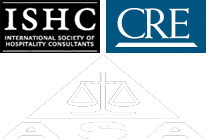Understanding the Intricacies of Hotel Planning
By : admin | Category : Hotel Management & Franchise Agreements | No Comments
17th Jan 2015
Planning successful strategies around which a hotel establishment can thrive in today’s modern world is by no means an easy task. It requires the implementation of a multitude of well-executed hotel planning procedures.
How Understanding Planning Will Increase Hotel Bookings
The hospitality and service industries are largely audience-oriented, and need repeat business and positive reviews from customers in order to continue.
When it comes to understanding any client base, it is important to take demographics and consumer behavior into account. Statistically:
- Women are predominantly responsible for driving leisure travel
- Most travellers begin planning their vacation three months or more in advance
- A significant proportion of travellers still book their hotel rooms via phone
The Importance of Proper Programming in Hotel Planning
Five-star properties may favor design aesthetics over utility in comparison to buildings constructed on a budget. In either case, the objective of the developer remains the same, regardless of how the space is arranged.
Where hotels are built from the ground up, good planning must take precedence, and the strategies employed must balance a functional yet pleasing layout that addresses and meets the needs of the guests.
Assigning areas in accordance with a priority level relating to foot traffic is generally considered by most to be a good idea. For example:
- The main entrance or lobby should function as a central gathering point and should be designed with careful consideration given to positive first impressions.
- Relationships between buildings situated adjacent to each other should make sense in accordance to the overall program in order to facilitate pedestrian flow.
In an ideal scenario, construction will revolve around the activities a hotel plans on being able to provide. Once they are established, the ongoing process of hotel planning will commence.
Archives
Categories
Recent Posts
- Help with Due Diligence with Hotel Development Consulting in California
- How a Non-Lawyer Hotel and Real Estate Arbitrator in California Helps
- Valuation Methods from Hotel and Real Estate Appraisals in California
- What Has Your Resort Development Expert in California Done for You Lately?
- Essential Elements of Hotel Concession Contracts in California



